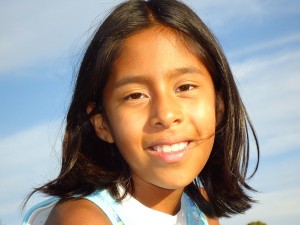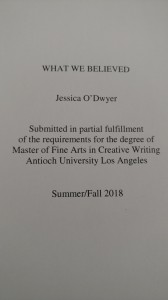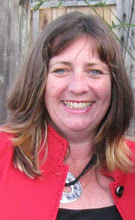
One of the questions I get asked most often when I talk about my book, Mamalita: An Adoption Memoir, is “How did your daughter, Olivia, respond to meeting her birth mother?” For many parents who adopted children internationally, a birth mother-and-child relationship is uncharted territory. No one knows what to expect.
Each reunion experience is different. What is true for us may not be true for you; what is true for us today may not be true for us tomorrow, or next year. Our relationship with Olivia’s birth mother continues to evolve. The over-arching element is love. And relief. Relief for “Ana,” knowing the baby she gave up is a growing, nine-year-old girl, healthy and happy and loved. Relief for me, knowing that Ana placed Olivia for adoption—not without sorrow and loss—but with free will. For Ana, adoption to a family in the United States was the best choice.
To connect with Ana, I hired a professional “searcher,” a Guatemalan woman I found through an online adoption group to which I belong. The searcher approached Ana with discretion, under the guise of delivering an express mail envelope. Afterward, the searcher gave us photos and a detailed report outlining Ana’s reaction to hearing from the couple in California who adopted her baby—a welcomed and unexpected surprise—as well as a description of Ana’s current living situation.
In addition, the searcher facilitated our initial meeting in Guatemala, which I recommend. Reunions between birth and adoptive families can be awkward for everyone. Our relationship with Ana now feels secure enough that I navigate the logistics myself. Like most people in Guatemala, Ana owns a cellphone. She does not, however, own a computer; her home lacks electricity. I call from the U.S. to arrange our meeting time and place.
Language remains a challenge: Ana is an indigenous Maya K’iche widow, who lives with her two older teen children, “Luis” and “Dulce,” and her own mother, Abuela, in a highland town north of Lake Atitlan. Ana’s s first language is K’iche, with some Spanish. Luis and Dulce are bilingual K’iche and Spanish, while Abuela speaks only K’iche. My Spanish is rudimentary at best, and Olivia’s skill is developing.
We hug a lot. We gesture. We hold hands. A very effective way to communicate is via sketch pads. Like Olivia, her birth mother and half-siblings draw very well. Everyone depicts scenes from their lives, and passes them around. Favorite subjects for our Guatemalan family include birds, and trees, and the facades and interiors of churches. Luis and Dulce call me their “American mom.” Ana refers to me as “little mommy.”
Since our first reunion in 2008, we visit Olivia’s birth family at least once a year, sometimes twice. To protect Ana’s privacy, we meet in a relatively large town on Lake Atitlan, instead of her small village. Someday, we hope to visit Ana’s home, but we will wait for Ana’s invitation, and respect her timetable. Relinquishing a child is often viewed with shame in Guatemala, and we wouldn’t want to compromise Ana’s safety or reputation by making ourselves visible in her community.
Meeting Olivia’s birth mother has answered many questions for Olivia. From visiting Guatemala, Olivia has witnessed firsthand the hardships faced by many in the country, especially poor indigenous women. At the same time, she has sat on her birth mother’s lap and felt her mother’s embrace. She knows that she is loved. Even from a distance, Ana feels like a real and familiar part of our family. “Your beautiful smile is just like Ana’s,” I tell Olivia. “You’re both artists.”
This past Saturday at home in California, I drove the minivan into our garage with Olivia and her brother, Mateo, in the back seat. Seemingly out of nowhere, Olivia piped up and said, “I have four moms.”
I put the car in in park and turned off the engine. “Do tell, Olivia.”
“I have you, Mom, and Mama Ana. And I have Mateo’s birth mom, because he’s my brother so she’s my mother, too. And I have Mary, the mother of God.” (We’re Catholic.)
“Four moms,” I said, “and we all love you.”
Reaching over the back seat, I squeezed my daughter’s hand.


 ShareThis
ShareThis




 ShareThis
ShareThis




